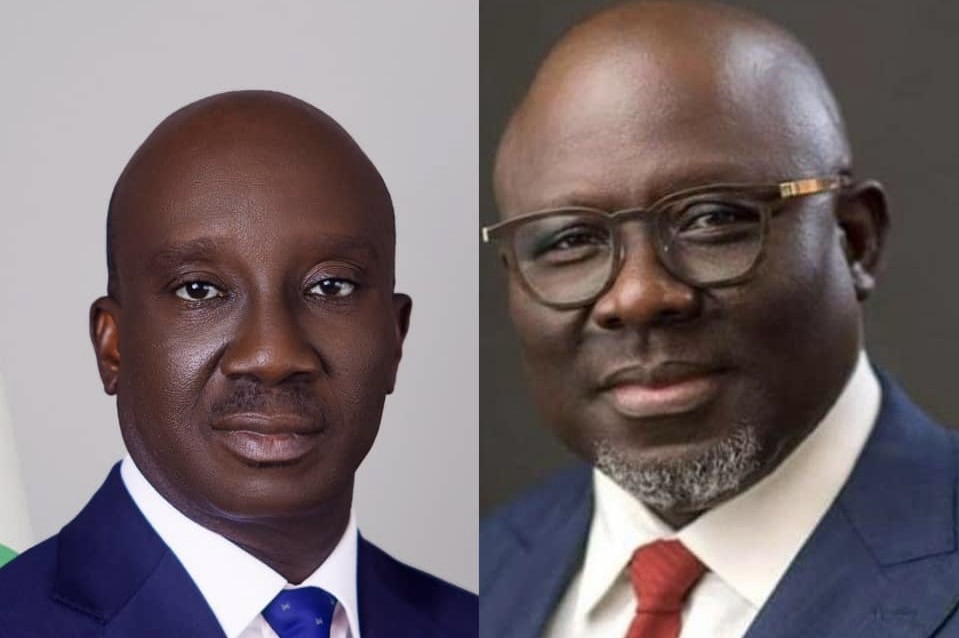In today’s increasingly complex societal landscape, unconventional behaviours often emerge, sparking deep concerns about moral decay and societal decline. Particularly alarming are the audacious and reckless acts displayed by some individuals that boldly assert an undeserved dominance over established institutions, most notably concerning the Nigeria Police Force (NPF).
Recent viral videos vividly illustrate incidents where Nigerian youths engage in direct confrontations with police officers, showcasing a disturbing disregard for authority. In one striking example, a young man fearlessly confronts a police officer wielding a loaded AK-47 rifle. His actions, marked by defiance and seeming fearlessness, highlight a dangerous trend where familiarity breeds contempt, eroding the traditional respect accorded to law enforcement.
The concept of ‘see finish,’ deeply rooted in Nigerian culture, aptly and germanely captures this phenomenon. It reflects a societal attitude where over-familiarity with authority figures, such as the police, results in a loss of reverence and deference. This familiarity often stems from perceived corruption or unprofessional conduct within the police ranks, thereby fostering disrespect and contentious interactions between youths and law enforcement officers.
The incidents captured in the viral videos not only expose the temerity of the youth involved but also unveil lapses in professional conduct within the police force itself. Instead of maintaining composure and authority, the officer in question was seen stumbling into a physical altercation over the alleged confiscation of a mobile phone. Such unprofessional behaviour not only undermines the integrity of the police force but also reinforces public perceptions of ineptitude and misconduct.
Historically, the Nigeria Police Force has faced severe challenges related to credibility and trust. Instances where police officers have been implicated in criminal activities, such as the collaboration of late DSP George Iyamu with notorious criminals like Lawrence Anini in the mid-1980s; the recent allegations of involvement in kidnapping-for-ransom activities in Uromi, Edo State, as well as the recent viral video of a police officer who allegedly killed his colleagues and vended their rifles to criminals bring to the fore, systemic issues that erode public trust and confidence in the NPF.
To effectively address these challenges, urgent reforms within the Nigeria Police Force are imperative. A comprehensive reform agenda must be initiated to restore the tarnished image of the force. Key to this effort is a steadfast commitment to transparency, accountability, and adherence to professional standards. Measures aimed at combating corruption and misconduct among police ranks must be vigorously pursued, alongside efforts to enhance ethical standards and reinforce training programmes for officers.
Moreover, the NPF must reclaim its rights as a protector of the people. This can be achieved through proactive community engagement initiatives such as community policing and outreach programmes. These initiatives not only bridge the gap between law enforcement and the public but also foster mutual respect and cooperation, essential for effective policing in a democratic society.
While condemning disrespectful behaviour towards law enforcement exhibited by some youths, it is equally critical to hold accountable those within the police force who betray the public trust. The leadership of the Nigerian police force publicly condemns its officers who conduct searches of people’s phones, asserting that such actions constitute a violation of Nigerians’ rights. Despite these official admonitions, however, there are still instances where recalcitrant and defiant officers persist in conducting these searches. Upholding principles of justice and fairness within the police force is paramount to rebuilding public confidence and safeguarding democratic values.
To effectively combat corruption that is the root cause of the ‘see finish’ within the Nigeria Police Force, it is essential for the Federal Government to take a closer look at the current compensation structure for its operatives. Many instances of corruption arise from inadequate financial incentives, which can create vulnerabilities that lead to unethical behaviour.
By offering a more competitive and attractive remuneration package, the government can provide these operatives with better financial stability and reduce their reliance on corrupt practices to supplement their income. Improved pay would not only boost morale but also align the interests of the operatives with ethical conduct, thereby creating a more transparent and accountable environment within the Nigeria Police Force. Addressing the underlying cause of financial dissatisfaction can play a crucial role in mitigating corruption and fostering a more professional and dedicated workforce.
In conclusion, the incessant incidents of confrontations between Nigerian youths and the police accentuate deeper societal issues that demand urgent attention. Both the youth and law enforcement official must uphold mutual respect and adherence to the rule of law. By addressing systemic challenges and promoting accountability, the Nigeria Police Force can reclaim its position as a trusted guardian of public safety and justice in the country.
Odaro, a columnist, lectures in the Department of Mass Communication, Auchi Polytechnic, Auchi


